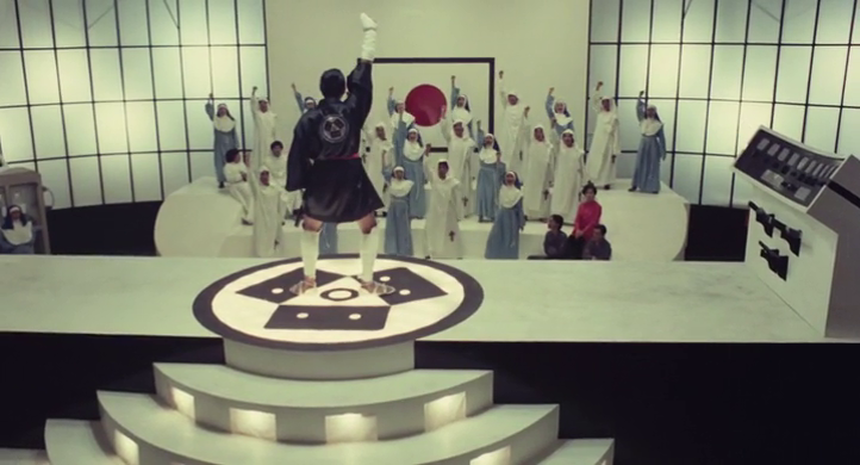|
Kakabakaba Ka Ba's tone and treatment could not be more different than De Leon's Kisapmata, Itim, or Batch 88, but it ultimately features its own unique cutting social critique through a maximalist panache that continuously escalates as the film progresses. A sardonic, farcical crime caper musical! that sets its sights on the pervasive ways imperialism infects, distorts, and rearranges cultural identity. From Christianity to the Pan-Asian sphere of influence by Japan and China on the Philippines, Kakabakaba Ka Ba is a biting, playful critique of economic and social imperialism that trades in the suffocating, simmering tension of the three aforementioned films above for a more kinetic, gonzo approach. There of course is a link between the fascism De Leon explores in both Batch 88 (explicitly) and Kisapmata (implicitly) with transnational imperialism he explores in Kakabakaba Ka Ba? as both rely on subjugation, it's just a level of degrees in how explicit it manifests itself. Kakabakaba Ka Ba? proclaims that De Leon is far from a one-trick pony as a filmmaker, as this film's playful formal designs have more in common with Bogdanovich's Whats Up Doc? than it does with some of his other work. De Leon remains fascinated with examining oppression in its more explicit and implicit forms. Subjugation and authority are intertwined, whether it be toxic masculinity under a patriarchal society, outright fascism, religious orthodoxy, or imperialism. The ways in which social or political power restrict social liberty feels like a subtle throughline of De Leon's work I've seen, and there is a continuous focus on cultural identity and the various external forces that continue to sculpt and mold Filipino society.
0 Comments
Leave a Reply. |
AuthorLove of all things cinema brought me here. Archives
June 2023
|

 RSS Feed
RSS Feed
